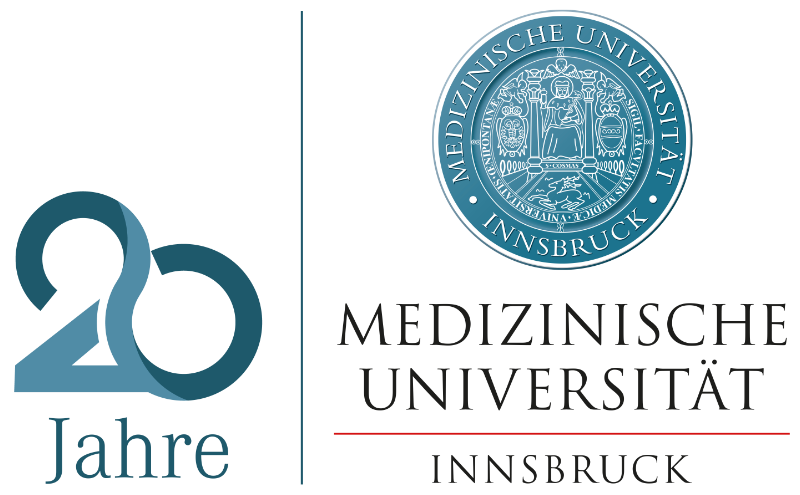Quality Management
ChiBASE
In addition to the Clinical Information System (HIS), the University Clinic for Visceral, Transplant and Thoracic Surgery has a proprietary, quality-assured and auditable documentation system. This quality controlled registry meets all criteria of a "Registry-embedded Clinical Trial" and thus represents a unique tool for quality assurance and health care research. Furthermore, it is the obligatory basis for all translational research.
The participation of all patients in a university hospital in the context of studies is a vision that has not yet been turned into reality due to various circumstances. The concept of "registry-embedded clinical trials" fulfils all requirements for the verifiable quality of medical data at the highest level (auditability) on the one hand, and on the other hand, retrospective analyses using suitable statistical methods (propensity score analysis) can for the first time be equated with the quality level of randomized clinical trials (RCT). This revolutionary concept has been partially implemented by the National Surgical Quality Improvement Program (NSQIP®) of the American College of Surgeons (ACS) and by individual national and international registries, but has never been implemented in the daily routine of a clinic, except at the University Clinic for Surgery of the Paracelsus Medical Private University (PMU) Salzburg. One of the main hurdles so far has been the lack of availability of clinically oriented documentation systems, the increased time required for documentation, and the impossibility to develop a general prototype for several surgical clinics.
ChiBASE meets the first two requirements mentioned above and has already been tested in daily clinical routine. It is not only a tool for the quality of results - and thus an essential instrument of quality management and clinical as well as translational research - but also maps the equally important process quality of clinical procedures. From a technical point of view it is not bound to a special software (front-end). Indeed, its essential and indispensable features of success are, on the one hand, the jargon catalogues (e.g. ICPM++ and ICD-10++) and, on the other hand, the principle that data are collected where they occur - this also includes mobile data input with tablets. Finally, these data are reviewed at various levels that are established in everyday clinical practice. In addition, data evaluation (on the one hand by means of ready-made routines and on the other hand as data export to statistical programs) must be possible for all available data independent of time and person - i.e. without the assistance of third parties. A coding (the core of which are the jargon catalogues) and, in appropriate cases, also a stratification of the data is carried out. All in all, this results not only in an excellent data quality for scientific purposes, but also in a knowledge database which is not only of essential importance for the medical management of a university hospital, but also, under consideration of economic aspects, for the administration of a hospital.
M&MC
(morbidity and mortality conferences)
Routine quality assurance includes regular and structured discussions of all deaths and complications at VTT. Those responsible at VTT have experience and international recognition in this area. (D. Öfner: Multidisziplinäre Tumorboardkonferenzen im Patientensicherheitsmanagement; Gausmann P (ed.) de Gruyter Verlag 2015)
MDT
(Multidisciplinary Tumor Boards)
The University Clinic for Surgery I (the predecessor of VTT), in cooperation with the University Clinic for Radiotherapy and Oncology, was a pioneer in this field by institutionalizing the first of these modern MDTs in Austria in 1993. Prof. Lukas (Director of the University Clinic for Radiotherapy and Oncology) and the then OA Dr. D. Öfner held the first conferences. Today, the MDT has become an integral part of clinical routine and is being further developed under the direction of Prof. Öfner in the sense of intradisciplinary tumour boards with surgical partners in North, East and South Tyrol, but also in Vorarlberg.
Quality assurance routines
Daily routine
- Morning session: Near misses and pitfalls in loop view; control of the day's surgical program; journal club and knowledge database, creation and archiving of SOPs, use of the "digital whiteboard"; overview of quality assurance (daily presentation of dominant clinical key points and of tracer diagnoses and complications); control of performance coding (incl. Surgery times and surgeons), ad hoc correction, stratification (emergency - early selective - elective, re-surgery, unplanned - planned), control of the coding of intraoperative complications; transfer of services based on a table of admissions with stratification (acute - planned, resumption within 14 days, transfer from other hospitals, reason for transfer, decursion); Discussion and stratification of deaths (mors in tabula - postoperative (ICU, recovery, ICU, Obs, ward) - after conservative therapy, inpatient - outpatient; unexpected - expected); discussion of the acute cases from the service, decursion
- Indication and RÖ discussion: OP programme next day, indication discussion; RÖ of the day and for patients on the OP programme, decursion
- Other daily routines: Ward work (complications, infections, decursing); admission documentation (admission diagnosis, type of admission).
- Admission and discharge documentation (DIN A3 discharge documentation, ranking in main and secondary services and diagnoses, copy of the fever curve, Charlson co-morbidity index); cross-check OP documentation, OP prescription.
Weekly routines
- Tumor board meetings: Stratification, Decuration
- Chief rounds: Coding of complications, decoding of orders
- List of oncological cases with stratification (not relevant for tumor board meeting, with reason [discussed - not multimodal] - go to recent list - next time - for which tumor conference)
Monatliche Routinen
- M&MC: Films in the system, stratification, knowledge database, decursification
- Link to the Tumour Register Tyrol with transmission of the current data
Annual routine
- Examination (twice a year): Strategy considerations, measures to increase efficiency
- Annual report: reporting on performance





